In 2018 AEES Group advised on and managed installation of a 160 kW solar rooftop system on the roofs of Ballarat Golf Club, designed to reduce electricity bills by an average of 40% over each 12-month period. Today it announced an agreement with Golf Management Australia, an association with some 365 member clubs, to provide its clubs with a range of services including cost-benefit analysis of solar installation, financial modelling, support with tendering for a renewable-energy system, as well as system monitoring and maintenance.
Richard Martin, Managing Director of AEES Group says the community-based committees running sporting clubs are “always vitally interested in solar”, but as with any business, the decision to install a PV system should be preceded by an energy-efficiency audit, which can result in initial savings that also reduce the size of the optimal solar system for that facility.
He says the largest electricity use for golf clubs is usually in heating, ventilation and cooling (HVAC) systems, followed by lighting, and then the pumps used to power irrigation systems on the course.
Changes such as switching to LED lighting and improving insulation and glazing in the clubhouse, updating master switchboards and upgrading pumps in the workshop are the easy shots in a strategic approach to improving club sustainability.
With guidance from AEES Group, Ballarat Golf Club fully financed its system of SunPower P19 395-watt smart modules with SolarEdge inverters and DC Optimisation, via a bank loan which is being repaid out of savings made on electricity.
Both grid-side and solar-side electricity consumption of the Ballarat club are monitored remotely in real time, and Martin accesses live data to confirm that savings on this summer’s day are currently 46% on what the club would be paying for electricity from the grid.
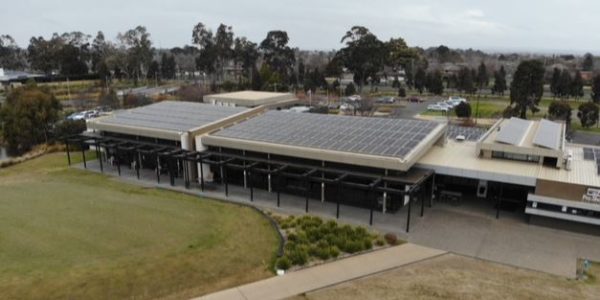
AEES Group cost-benefit analysis considers existing and emerging solar and supporting technologies, such as battery storage. “Batteries are still expensive for commercial-sized solar,” says Martin. But prices are coming down and “any system should be designed to cater for a limited further capital cost of adding batteries at the point when their cost is sufficiently reduced”.
He says a club’s decision to immediately include batteries might also be influenced by the localised demand cost of electricity. “In Queensland the network demand cost is around 40% to 60% of your bill. Some areas in Queensland charge as much as $20 to $30 per kVA of demand,” says Martin, “whereas in Victoria it’s as low as $10 or $12 per kVA.” The higher the kVA unit cost, says Martin, the greater the business case for battery installation.
GMA Executive Officer, Jim Cail says he’s had many discussions over the past 12 months with golf-club general managers who are considering installation of solar systems, and was keen to provide professional support for clubs to explore their options.
With its 160 kW installation of solar PV, Ballarat Golf Club has, in addition to cutting electricity costs, reduced its annual greenhouse gas emissions by 181 metric tonnes of CO2.
Martin says he looks forward to providing golf clubs in Australia with a “road map to zero net carbon facilities delivered within the triple framework of financial, environmental and social objectives”.
This content is protected by copyright and may not be reused. If you want to cooperate with us and would like to reuse some of our content, please contact: editors@pv-magazine.com.
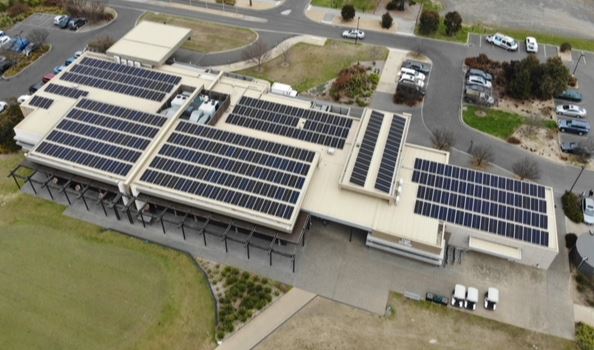


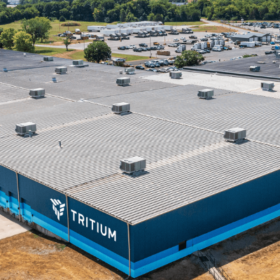
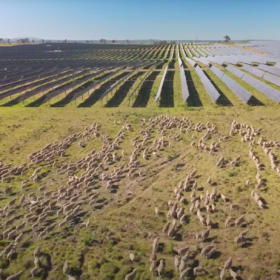
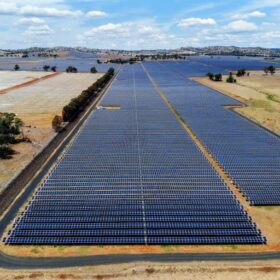
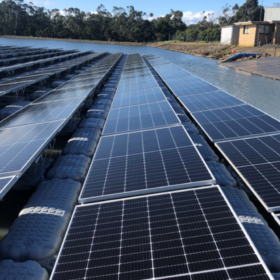
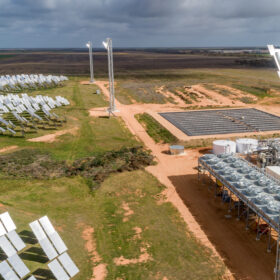
By submitting this form you agree to pv magazine using your data for the purposes of publishing your comment.
Your personal data will only be disclosed or otherwise transmitted to third parties for the purposes of spam filtering or if this is necessary for technical maintenance of the website. Any other transfer to third parties will not take place unless this is justified on the basis of applicable data protection regulations or if pv magazine is legally obliged to do so.
You may revoke this consent at any time with effect for the future, in which case your personal data will be deleted immediately. Otherwise, your data will be deleted if pv magazine has processed your request or the purpose of data storage is fulfilled.
Further information on data privacy can be found in our Data Protection Policy.